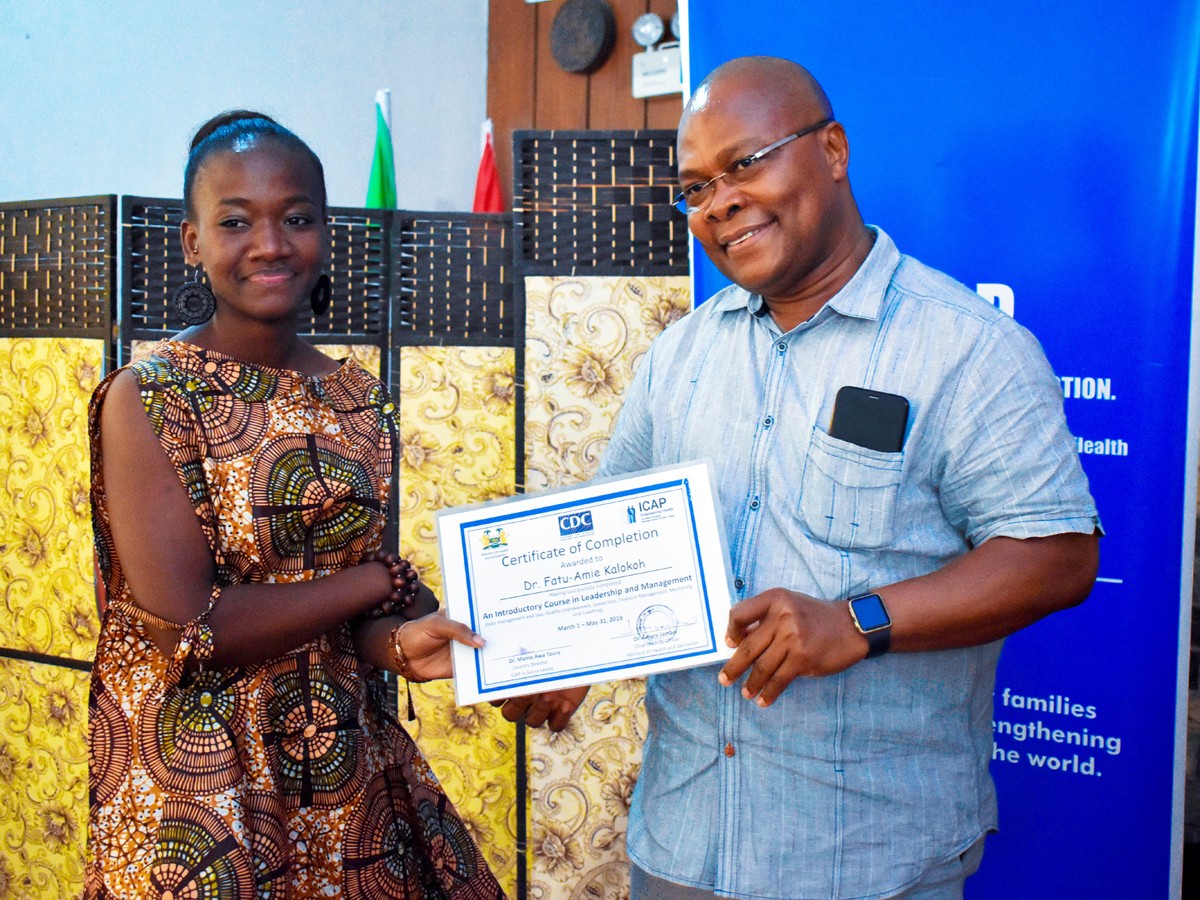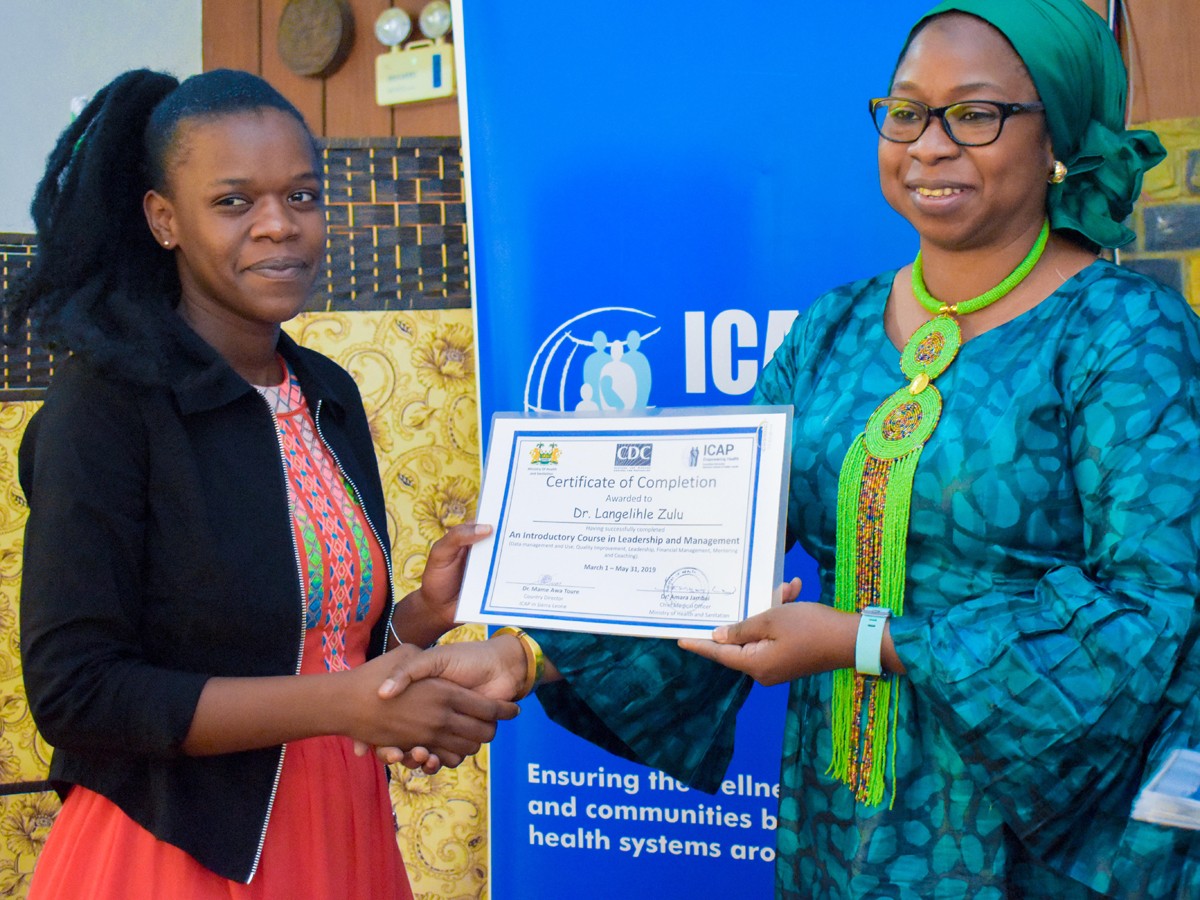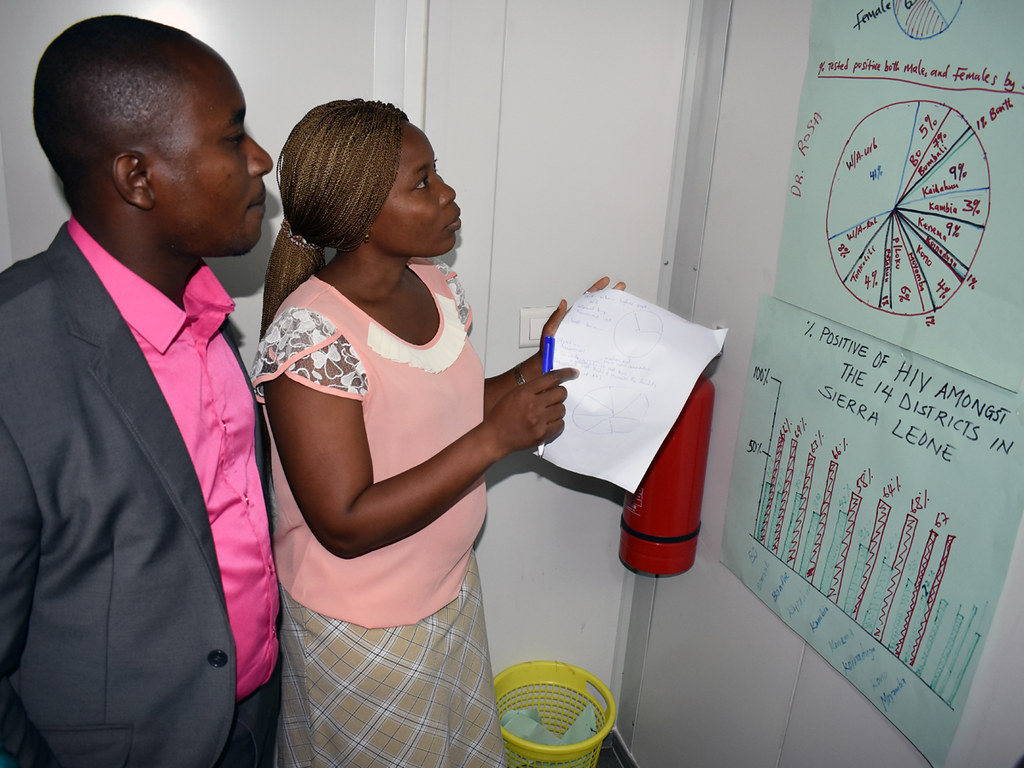In Sierra Leone, house officers (medical interns) are often posted in leadership positions at low-resource health facilities and are expected to make critical management decisions that can impact thousands of patients. However, their education seldom includes leadership and management training, leaving a knowledge gap that can lead to unfortunate consequences for patient outcomes.
“Our lack of knowledge about how to collect and accurately manage data has been identified as one of the critical deficits that has claimed lives in our country,” said Foday Tijan Mansaray, MD, who was recently posted as a house officer at Connaught Hospital in Freetown.

To equip house officers like Dr. Mansaray with the essential skills needed for effective management decisions, ICAP worked in partnership with the Sierra Leone Ministry of Health and Sanitation, with funding from the U.S. Centers for Disease Control and Prevention (CDC), to successfully train and graduate the first cohort of a new Leadership and Management certificate program.
Led by ICAP’s Field Epidemiology Training Program (FETP) manager, Amon G. Njenga, RN, MA, the first cohort specifically focused on data management and use, quality improvement, leadership and management, mentoring and coaching, and financial management which enabled house officers to discover current lapses in the health sector during their assignments.
“Leadership and governance are important elements of health systems strengthening outlined by the World Health Organization,” Njenga said. “They are unarguably of strategic value for improving service delivery.”

At a ceremony on May 31, 2019, at Freetown’s Bintumani Conference Center, the first cohort of the training program graduated 26 participants from three Freetown hospitals: Connaught Hospital, Princess Christian Maternity Hospital, and Ola During Children’s Hospital. Representatives from CDC, ICAP, the Ministry of Health, partner organization EHealth Africa, and other key health sector stakeholders joined the celebration.
The event included an opportunity for the graduates to present their group projects, which covered a variety of research topics. The first group shared what they had learned about best practices in collecting and using data to address maternal mortality, a serious public health issue in Sierra Leone, citing case studies from Princess Christian Maternity Hospital. This group developed a programmatic scheme illustrating challenges and causes of maternal deaths occurring at the hospital between December 2018 and March 2019, and found that insufficient intake and usage of vital signs was one of the major causes of maternal death.
Brigitte Gleason, surveillance and program lead for CDC, who attended the graduation, applauded the groups for their presentations on various topics. “I am especially amazed by the first presentation done by PCMH, and I sincerely applaud ICAP and the Ministry of Health for such a thorough training focused on leadership and governance.”

In her closing remarks, program graduate Amie Kalokoh, MD, also emphasized the benefit of the research assignment. “This training has clearly qualified us to make improved decisions and now be called professionals!” she said. “I’m grateful to ICAP and CDC on behalf of my colleagues for such a platform. We will be sure to teach others and apply all that we have learned. We certainly will make a change with the knowledge gained from this program.”
Click on the image below to view a gallery of pictures from the graduation event in Sierra Leone:
Photo captions—Header image: Langelihle Zulu, MBChB, receives her leadership and management training certificate from Mame Toure, MD, MSc, country director for ICAP in Sierra Leone, on May 31, 2019, in Freetown, Sierra Leone. Photo 2: Foday Tijan Mansaray, MD, receives his leadership and management training certificate from Ayeshatu Mustapha, MD. Photo 3: Amon G. Njenga, RN, MA, Field Epidemiology Training Program (FETP) manager for ICAP in Sierra Leone. Photo 4: Amie Kalokoh, MD, receives her leadership and management training certificate from Dennis H. Marke, MD, program manager for health systems strengthening at the Sierra Leone Ministry of Health and Sanitation.
A global health leader since 2003, ICAP was founded at Columbia University with one overarching goal: to improve the health of families and communities. Together with its partners—ministries of health, large multilaterals, health care providers, and patients—ICAP strives for a world where health is available to all. To date, ICAP has addressed major public health challenges and the needs of local health systems through 6,000 sites across more than 30 countries. For more information about ICAP, visit: icap.columbia.edu









